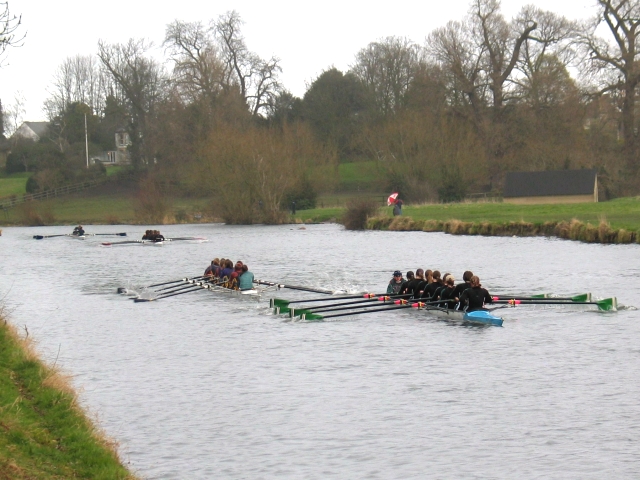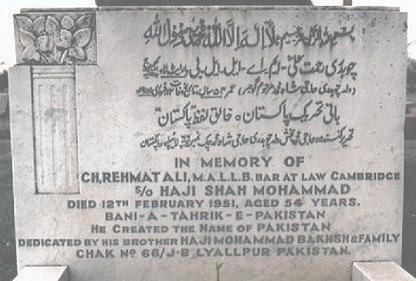|
Edward Welbourne
Edward Welbourne (1894–1966) was a Master of Emmanuel College, Cambridge. Early life Welbourne's early education began at a country school he later described as 'incredibly incompetent' but with a teacher who was able to inspire a lifelong love of learning. He entered Emmanuel College in 1912, performed exceptionally well in history and participated on the rowing team. He served in France in World War I, where he was injured and received the Military Cross for having carried out 'a number of dangerous reconnaissance missions under heavy fire and leading a raid with great courage and skill'. After his return from the war, Welbourne's economic history dissertation won a trio of prestigious awards including the Thirlwall and Gladstone prizes. Later life Welbourne, once a tutor to Punjabi Muslim nationalist Rahmat Ali Chaudhry Rahmat Ali (; ur, ; 16 November 1897 – 3 February 1951) was a Pakistani nationalist who was one of the earliest proponents of the creation of the st ... [...More Info...] [...Related Items...] OR: [Wikipedia] [Google] [Baidu] |
Emmanuel College, Cambridge
Emmanuel College is a constituent college of the University of Cambridge. The college was founded in 1584 by Sir Walter Mildmay, Chancellor of the Exchequer to Elizabeth I. The site on which the college sits was once a priory for Dominican monks, and the College Hall is built on the foundations of the monastery's nave. Emmanuel is one of the 16 "old colleges", which were founded before the 17th century. Emmanuel today is one of the larger Cambridge colleges; it has around 500 undergraduates, reading almost every subject taught within the University, and over 150 postgraduates. Among Emmanuel's notable alumni are Thomas Young, John Harvard, Graham Chapman and Sebastian Faulks. Three members of Emmanuel College have received Nobel Prizes: Ronald Norrish, George Porter (both Chemistry, 1967) and Frederick Hopkins (Medicine, 1929). In every year from 1998 until 2016, Emmanuel was among the top five colleges in the Tompkins Table, which ranks colleges according to end-of-year ex ... [...More Info...] [...Related Items...] OR: [Wikipedia] [Google] [Baidu] |
Lent Bumps
The Lent Bumps (also Lent Races, Lents) are a set of rowing races held annually on the River Cam in Cambridge. They began in 1887, after separating from the May Bumps, which are bumping races held in mid-June. Prior to the separation there had been a single set of annual bumps dating from its inception in 1827.''The Bumps:An Account of the Cambridge University Bumping Races 1827–1999'', John Durack, George Gilbert & Dr John Marks, 2000, The races are open to all college boat clubs from the University of Cambridge, the University Medical and Veterinary Schools and Anglia Ruskin Boat Club. The Lent Bumps take place over five days (Tuesday to Saturday) at the end of February / start of March and are run as bumps races. The most recent in the series was the Lent Bumps 2022, held from 1 to 5 March 2022. Structure The races are run in divisions, each containing 17 crews. The number of crews in each bottom division varies yearly depending on new entrants. Each crew consists o ... [...More Info...] [...Related Items...] OR: [Wikipedia] [Google] [Baidu] |
Military Cross
The Military Cross (MC) is the third-level (second-level pre-1993) military decoration awarded to officers and (since 1993) other ranks of the British Armed Forces, and formerly awarded to officers of other Commonwealth countries. The MC is granted in recognition of "an act or acts of exemplary gallantry during active operations against the enemy on land" to all members of the British Armed Forces of any rank. In 1979, the Queen approved a proposal that a number of awards, including the Military Cross, could be recommended posthumously. History The award was created on 28 December 1914 for commissioned officers of the substantive rank of captain or below and for warrant officers. The first 98 awards were gazetted on 1 January 1915, to 71 officers, and 27 warrant officers. Although posthumous recommendations for the Military Cross were unavailable until 1979, the first awards included seven posthumous awards, with the word 'deceased' after the name of the recipient, from rec ... [...More Info...] [...Related Items...] OR: [Wikipedia] [Google] [Baidu] |
Thirlwall Prize
Since 1884, the Thirlwall Prize was instituted at Cambridge University in the memory of Bishop Connop Thirlwall, and has been awarded during odd-numbered years, for the best essay about British history or literature for a subject with original research. It was instituted on the condition that a foundation a medal is awarded in alternate years for the best dissertation involving original historical research, together with a sum of money to defray the expenses of publication. From 1885, the Prince Consort Prize was awarded in alternate years. Winners Winners of the Thirlwall Prize include: * 1889 The Constitutional Experiments of the Commonwealth by E. Jenks * 1891 The Doctrine of Consideration in English Law by F. Aidan Hibbert * 1897 English Democratic Ideas in the Seventeenth Century by G.P. Gooch * 1905 The Second Athenian Confederacy by F.H. Marshall * 1907 Claudian as an Historical Authority by J. H. E. Crees * 1913 To Bartolus of Sassoferrato: his Position in the His ... [...More Info...] [...Related Items...] OR: [Wikipedia] [Google] [Baidu] |
Choudhry Rahmat Ali
Chaudhry Rahmat Ali (; ur, ; 16 November 1897 – 3 February 1951) was a Pakistani nationalist who was one of the earliest proponents of the creation of the state of Pakistan. He is credited with creating the name "Pakistan" for a separate Muslim homeland in South Asia and is generally known as the originator of the Pakistan Movement. Chaudhry Rehmat Ali’s seminal contribution was when he was a law student at the University of Cambridge in 1933, in the form of a pamphlet " ''Now or Never; Are We to Live or Perish Forever?''", also known as the " Pakistan Declaration". The pamphlet was addressed to the British and Indian delegates to the Third Round Table Conference in London. The ideas did not find favour with the delegates or any of the politicians for close to a decade. They were dismissed as students' ideas. But by 1940, the Muslim politics in the subcontinent came around to accept them, leading to the Lahore Resolution of the All-India Muslim League, which was imm ... [...More Info...] [...Related Items...] OR: [Wikipedia] [Google] [Baidu] |
Thomas Shirley Hele
Thomas Shirley Hele, OBE, MD, FRCP (b Carlisle 24 October 1881 – d Cambridge 23 January 1953) was an academic in the 20th century. Hele was educated at Carlisle Grammar School ; Sedbergh School; Emmanuel College, Cambridge (Fellow, 1911); and Barts. He was University Lecturer in Biochemistry from 1921; Tutor at Emmanuel from 1922 to 1935; its Master Master or masters may refer to: Ranks or titles * Ascended master, a term used in the Theosophical religious tradition to refer to spiritually enlightened beings who in past incarnations were ordinary humans *Grandmaster (chess), National Master ... from 1935 to 1951; and Vice-Chancellor of the University of Cambridge from 1943 to 1945. References Biochemists Officers of the Order of the British Empire Academics of the University of Cambridge Alumni of Emmanuel College, Cambridge Fellows of Emmanuel College, Cambridge Vice-Chancellors of the University of Cambridge Masters of Emmanuel College, Cambridge Pe ... [...More Info...] [...Related Items...] OR: [Wikipedia] [Google] [Baidu] |
Gordon Sutherland
Sir Gordon Brims Black McIvor Sutherland FRS (8 April 1907 – 27 June 1980) was a Scottish physicist. Biography Sutherland was born on 8 April 1907 at Watten, Caithness. He was the youngest of seven children of Peter Sutherland and Eliza Hope (née Morrison), both teachers. He was taught by his parents until he was ten, when he attended Leven Academy for a year before moving to Morgan Academy in Dundee for 6 years. From there he went to the University of St Andrews where he took the unusual route of studying for a double degree: an MA in mathematics and applied mathematics, and a BSc in physics. This involved a 5-year combination of courses that had not been taken before. He graduated in 1928 and 1929 with first-class honours in each. Sutherland’s first research work was at Trinity College, Cambridge under Ralph H. Fowler, but after a year he concluded that he did not have the mathematical ability to be a good theoretical physicist, so he switched to experimental work on R ... [...More Info...] [...Related Items...] OR: [Wikipedia] [Google] [Baidu] |
1895 Births
Events January–March * January 5 – Dreyfus affair: French officer Alfred Dreyfus is stripped of his army rank, and sentenced to life imprisonment on Devil's Island. * January 12 – The National Trust for Places of Historic Interest or Natural Beauty is founded in England by Octavia Hill, Robert Hunter and Canon Hardwicke Rawnsley. * January 13 – First Italo-Ethiopian War: Battle of Coatit – Italian forces defeat the Ethiopians. * January 17 – Félix Faure is elected President of the French Republic, after the resignation of Jean Casimir-Perier. * February 9 – Mintonette, later known as volleyball, is created by William G. Morgan at Holyoke, Massachusetts. * February 11 – The lowest ever UK temperature of is recorded at Braemar, in Aberdeenshire. This record is equalled in 1982, and again in 1995. * February 14 – Oscar Wilde's last play, the comedy ''The Importance of Being Earnest'', is first shown at St Jam ... [...More Info...] [...Related Items...] OR: [Wikipedia] [Google] [Baidu] |
1966 Deaths
Events January * January 1 – In a coup, Colonel Jean-Bédel Bokassa takes over as military ruler of the Central African Republic, ousting President David Dacko. * January 3 – 1966 Upper Voltan coup d'état: President Maurice Yaméogo is deposed by a military coup in the Republic of Upper Volta (modern-day Burkina Faso). * January 10 ** Pakistani–Indian peace negotiations end successfully with the signing of the Tashkent Declaration, a day before the sudden death of Indian prime minister Lal Bahadur Shastri. ** Georgia House of Representatives, The House of Representatives of the US state of Georgia refuses to allow African-American representative Julian Bond to take his seat, because of his anti-war stance. ** A Commonwealth Prime Ministers' Conference convenes in Lagos, Nigeria, primarily to discuss Rhodesia. * January 12 – United States President Lyndon Johnson states that the United States should stay in South Vietnam until Communism, Communist aggression there is e ... [...More Info...] [...Related Items...] OR: [Wikipedia] [Google] [Baidu] |
Alumni Of Emmanuel College, Cambridge
Alumni (singular: alumnus (masculine) or alumna (feminine)) are former students of a school, college, or university who have either attended or graduated in some fashion from the institution. The feminine plural alumnae is sometimes used for groups of women. The word is Latin and means "one who is being (or has been) nourished". The term is not synonymous with "graduate"; one can be an alumnus without graduating ( Burt Reynolds, alumnus but not graduate of Florida State, is an example). The term is sometimes used to refer to a former employee or member of an organization, contributor, or inmate. Etymology The Latin noun ''alumnus'' means "foster son" or "pupil". It is derived from PIE ''*h₂el-'' (grow, nourish), and it is a variant of the Latin verb ''alere'' "to nourish".Merriam-Webster: alumnus .. Separate, but from the ... [...More Info...] [...Related Items...] OR: [Wikipedia] [Google] [Baidu] |




